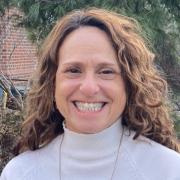Data-Driven Urban Forestry
The Hixon Center is pleased to announce its Spring 2025 Speaker Series on "Data-Driven Urban Forestry." Webinars will take place on Tuesdays from January 21 to April 8, from 10:30-11:30am U.S. ET.
The intensifying threats of climate change, including flooding and extreme heat, are especially evident in cities - home to the majority of the globe's population. To address these challenges, there is growing investment in urban forests and tree planting as “nature-based solutions” to build resilience and reduce environmental inequities. Throughout this seminar series, urban forestry experts will share their use of data to effectively resolve management problems and measure the efficacy of different solutions. Bringing a range of experience across government, research, and nonprofit leadership, lecturers will present insights to guide decision-making for more equitable, green, and climate-ready cities.
This series is co-sponsored by The Forest School at the Yale School of the Environment and the Urban Resources Initiative.
All lectures are free and open to the public. Recordings of each session will be available on the event page by the following Tuesday. We will offer CEUs for urban foresters in attendance through the Society of American Foresters and CT Department of Energy and Environmental Protection.
Speaker Information
Manja Kargbo leads the Mayor’s Delivery Unit, a team established specifically to drive innovation at Freetown City Council through the Transform Freetown Plan. As Team Lead, she provides strategic oversight to the team in the development, implementation, and delivery of over 30 projects. She led the team that developed #FreetownTheTreeTown which seeks to tackle the devastating rates of deforestation in the city by utilizing the community to plant, grow and digitally track trees. The project went on to win the Bloomberg Mayors Challenge in 2022 and was an Earthshot Prize finalist in 2023. She is currently an Earthshot Prize Fellow.
Manja works closely with the Mayor of Freetown and other city leaders to drive strategy and set the climate agenda through implementing the first Freetown Climate Action Strategy for the bustling city of 1.2million residents, with a focus on building equitable and sustainable pathways to climate adaptation with mitigation co-benefits for communities across the city.
Manja has a knack for building teams and programs from the ground up, even when the odds are against her. She has previously played a part in the establishment of a thriving private sector bank in Sierra Leone, led a high impact non-profit focused on business development services, and led a campaign to get a then-political underdog into office.
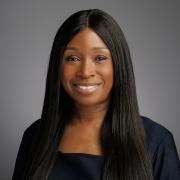
Speaker Information
Dr. Paige Brochu is the director of the University of Vermont Spatial Analysis Lab and research assistant professor in the Rubenstein School of Environment and Natural Resources. She is a UVM undergraduate alum and went on to gain both her Masters and PhD from Boston University School of Public Health. Her research focuses on the intersection of human health and the environment using geospatial analyses to better understand exposures and the impact to communities. Paige's work within the lab is centered around GIS applications and translating robust science into actionable data for community resilience.
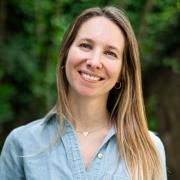
Speaker Information
Mike Alonzo is an Associate Professor in the Department of Environmental Science at American University. He uses geospatial analyses of airborne and satellite imagery to study how terrestrial ecosystems respond to global change, with a focus on the relationship between trees and urban heat. His research explores how urban forests mitigate heat, identifying where tree planting and maintenance are most effective and equitable. Alonzo’s team also uses drone-based thermal imagery and satellite-derived phenology data to study urban tree response to heat. His work has influenced urban tree canopy legislation and mitigation strategies in cities like Washington, DC. Alonzo teaches courses in remote sensing, GIS, and urban ecology.
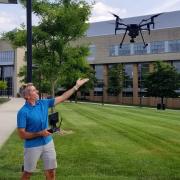
Speaker Information
Dr. Matthew Browning (MESc, 2012), Founder and Co-Director of the Virtual Reality & Nature Lab and Associate Professor in the Department of Parks, Recreation and Tourism Management at Clemson University, is a globally recognized scholar investigating the impact of nature on human health. His research aims to optimize nature-based solutions, measure nature exposure, and promote sustainability and nature-human interactions through technology. He has authored over 130 peer-reviewed publications and is ranked among the most productive and cited researchers in the fields of parks, recreation, and health based on recent PubMed metrics. He also acts as the Scientific Advisor for NatureQuant, developer of the personalized nature prescription app, NatureDoseTM. Examples of his recent work include the role of virtual reality in hospice care and disaster readiness; the environmental determinants of fatal police shootings, suicides, healthcare expenditures, and other pressing issues; and the categorization of natural landscapes that promote health. He increasingly focuses on engaging vulnerable populations in scalable urban greening initiatives for heat reduction and climate resilience. Dr. Browning has a BA in Biology from Oberlin College, MESc from Yale School of Forestry and Environmental Studies and PhD in Forest Resources and Environmental Conservation from Virginia Tech.
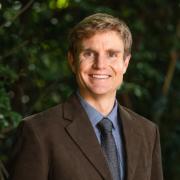
Speaker Information
Clara Pregitzer is the Deputy Director of Conservation Science at the Natural Areas Conservancy. In this capacity, she leads the organization’s research and conservation efforts in natural areas in NYC as well as other U.S. cities. She led the Forest Assessment component of the Natural Areas Conservancy Ecological Assessment for NYC parkland and the development of the Forest Management Framework. She previously worked with NYC Park’s Natural Resources Group, conducting ecological assessments in over 1500 acres of New York City Parks.
She holds a B.S. in Forestry from Northern Arizona University, a M.S. in Ecology and Evolutionary Biology from the University of Tennessee and a PhD from Yale School of the Environment.

Speaker Information
Colleen Murphy-Dunning is Director of both the Hixon Center for Urban Sustainability and the Urban Resources Initiative (URI) at the Yale School of Environment (YSE). URI carries out community-driven urban forestry to improve both the social and physical environment of the City of New Haven. Colleen manages the Hixon Center Fellowship program to support graduate students conducting a wide range of research projects in cities across the globe. She also co-leads a field-based urban ecology training module for all incoming YSE graduate students. Colleen received her B.S. in Public and Environmental Affairs from Indiana University, and M.S. in Forestry from Humboldt State University.
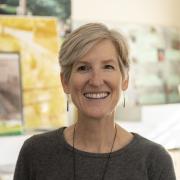
Speaker Information
Max Piana is a research ecologist and the Visiting Lecturer in Plant Science and Forest Ecology at the Harvard Graduate School of Design. Max's research focuses on applied ecology in urban ecosystems and emphasizes multi-disciplinary collaborations with designers, planners, natural resource managers, and community groups. Presently, he leads projects that test and develop novel approaches for urban forest mapping and inventory, urban greening and management strategies, and community engagement through education, participatory science, and workforce training. Max is a co-creator and co-lead of the Urban Silviculture Network, a group of scientists and practitioners collaborating to develop best practices in the inventory and management of natural lands in cities. He is also the Urban Forest Team Lead for the Updated Silvics of North America Project (USNAP), a collaborative effort by the US Forest Service, Canadian Forest Service, and the National Forestry Commission of Mexico to produce a comprehensive reference for tree species of the continent. Prior to the GSD, Max was a scientist in USDA Forest Service Northern Research Station. Max is an alum of Yale (MEM, ‘11) and URI and received his PhD in Ecology & Evolution from Rutgers University, where he was forest steward at the Hutcheson Memorial Forest Center.
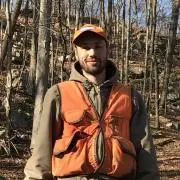
Speaker Information
Mac Martin is the Community Forestry Program Leader for the Texas A&M Forest Service. He holds a Bachelor of Science in Forest Resources from the University of Georgia and is passionate about connecting with people and improving local communities through forest management and nature-based solutions. He has played a key role in managing the Community Forestry Grants program, which distributes over $15 million in funding to projects that enhance the economic, environmental, physical, and mental well-being of all Texans. Martin is dedicated to creating meaningful relationships to build local capacity, connecting people with natural resources, and developing safer, more resilient communities. Mac is an International Society of Arboriculture Certified Arborist and holds the Tree Risk Assessment Qualification.
Speaker Information
Carla Short was appointed Director of San Francisco Public Works in November 2023, after serving as Interim Director since August 2021. She began her career with Public Works in 2004 as the City’s Urban Forester and became superintendent of the Bureau of Urban Forestry in 2015. During her tenure, she led the development and implementation of StreetTreeSF, a voter-approved initiative to transfer maintenance responsibility of San Francisco’s 124,000-plus street trees to Public Works. Short holds a Master of Environmental Management from Yale University and a Bachelor of Arts in Africana Studies and English from Vassar College. She also studied African literature, history, religion and culture at University of Ibadan in Nigeria. Prior to joining Public Works, she worked for several nonprofits, including Conservation International, Conservation Society of Sierra Leone and Tombo Wallah Farmers Association, spearheading conservation initiatives in West Africa.
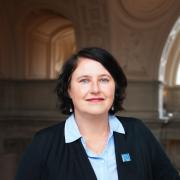
Speaker Information
For nearly 30 years, Jennifer has been committed to the care of New York City Parks’ nature—5.7 million trees and 12,000 acres of forests and wetlands—as well as seeking ways of connecting New Yorkers to this precious resource. In her role as Deputy Commissioner of Environment and Planning, Jennifer brings Parks’ nature portfolio to plan the future of the City's park system, so NYC Parks are ready for climate change, social change, and whatever else the future brings.
Jennifer received a BA from the University of Pennsylvania and a Master in Forest Science from the Yale School of the Environment.
